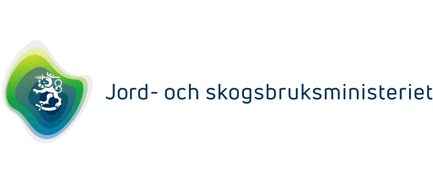Natural products are an important part of Finland’s bioeconomy resource
Natural products include wild berries, mushrooms, herbs, sap, ornamental plants, and raw materials for wellness and cosmetics products. The natural product sector differs from other agricultural and horticultural production with regard to the high share of exports: as much as half of the wild berries and mushrooms picked for sale are exported.
The Government steers the operations in the natural resources and natural product sectors as follows:
- “Building an Intelligent and Responsible Natural Resources Economy” Natural Resources Report submitted to Parliament by the Finnish Government
- National Forest Strategy 2035:
The forest strategy aims to diversify and grow forest-based business. Another objective is that the ecosystem services offered by forests will increase people's wellbeing and create new earning opportunities.
Investing in the natural product sector
Finland's CAP Strategic Plan (2023-27) includes grants for companies and projects aiming to develop the natural product sector. The programme provides support for various communication and cooperation projects and for development activities carried out by individual micro and small enterprises.
To ensure effective activities in the natural product sector, the programme also grants funding for a sector coordination project that functions as an umbrella project for the others in the programme.
Natural products play an important role in the economy and society
In good years, Finnish households pick about 50 million kilos of wild berries, while around 20 million kilos are picked on a commercial basis. The amount of wild mushrooms picked annually by households is 5–10 million kilos, with around 1.5 million kilos picked for sale. The commercial collection of wild herbs for food, wellness and cosmetics industry products and in the nutrition sector is currently on the rise.
There are about 150 companies in the sector that carry out collection, cultivation or semi-cultivation of natural products. Cultivation of wild plants increases crop security and puts less pressure on the collection of wild plants. It is particularly important for species with sparse distributions and a high susceptibility to harvesting pressure.
The turnover of the natural product sector in 2020 was approximately EUR 780 million. Collecting natural products under the right of access to private land provides an opportunity for anyone to earn money, including foreign pickers and collectors. Several hundred small first-purchase and processing companies operate in the industry.
Business in the natural product sector can be increased not only in primary production but also in the food, biotechnology, cosmetics, pharmaceutical and herbal medicine industries. Another significant source of business comes from combining natural products with wellbeing services and tourism. Innovative forest-based products and services are being developed through cross-sectoral collaboration and networking among different fields of business.
Organic natural products make up an important part of our natural product sector. In Finland, natural products and digitalisation are coming together in a unique way. The Metsään.fi system by the Finnish Forest Centre allows forest owners to register their forests as organic collection areas.
Related topics
National Forest Strategy 2035
Government report on food policy: Food2030 – Finland feeds us and the world
Related links
Sector report for the natural product sector 2022 (In Finnish)
Nature entrepreneur network (In Finnish)
Action programme for the natural product sector 2030 (In Finnish)
the Rural Development Programme for Mainland Finland
The Arctic Flavours Association
Organic 2.0 – Finland’s National Programme for Organic Production 2030
Mer information
Ville Schildt, konsultativ tjänsteman
jord- och skogsbruksministeriet, naturresursavdelningen, Metsä- ja biotalousyksikkö Telefon:0295162190 E-postadress: fornamn.efternamn@gov.fi
